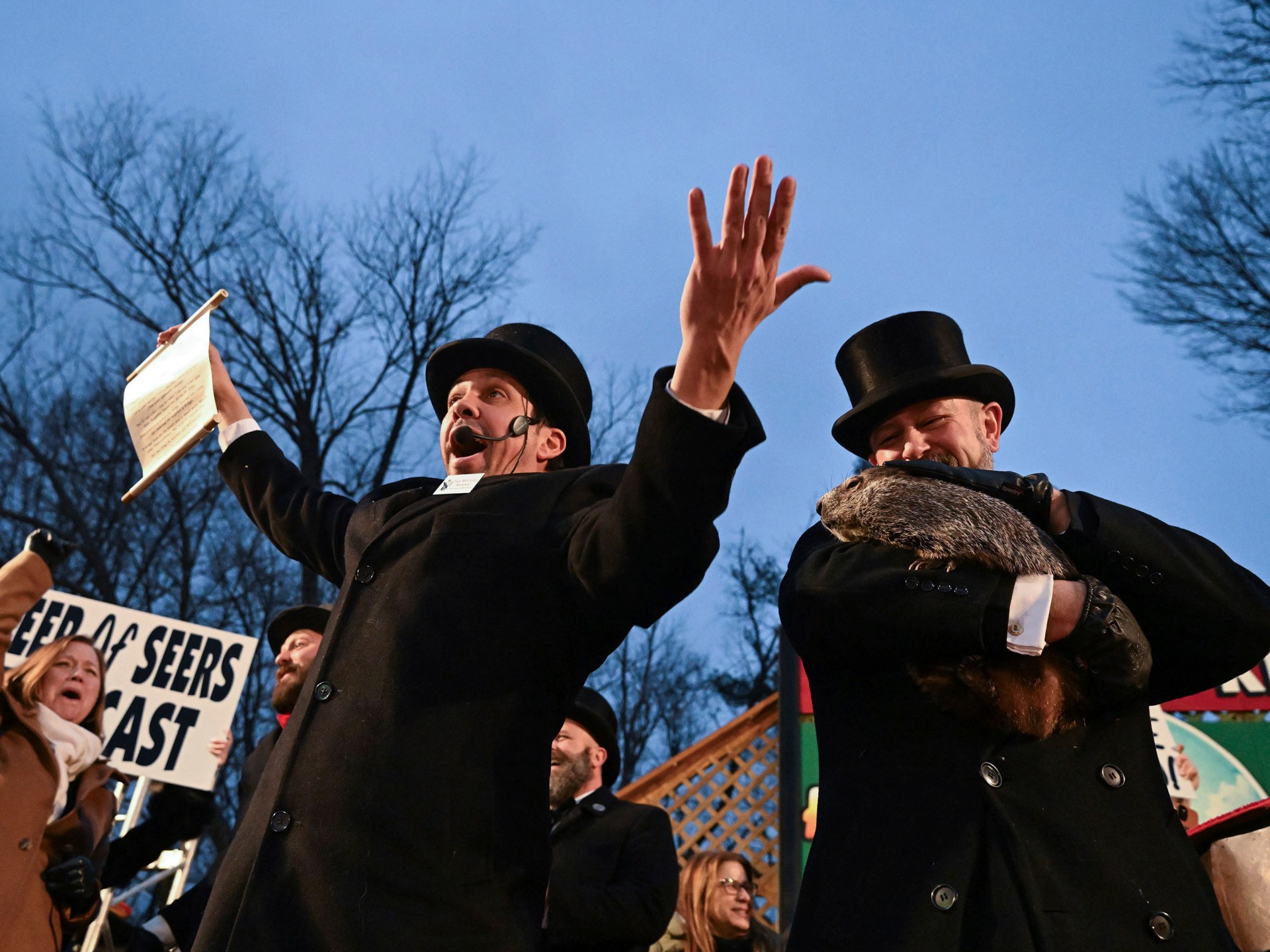More than 40,000 people gathered to see the Pennsylvania prognosticator as part of a tradition dating back to 1887.
Pennsylvania’s primo prognosticator Punxsutawney Phil did not see his shadow during annual Groundhog Day celebrations on Friday, meaning that, according to legend, there will be an early spring.
The US state’s tradition of using a large rodent to predict the seasons dates back to the Pennsylvania Dutch belief that if a groundhog left its burrow and saw its shadow, it would scurry back inside and winter would go on for six more weeks.
Groundhog Day is now a major yearly event in Gobbler’s Knob in Punxsutawney, Pennsylvania, complete with top-hatted comperes, cheering crowds and a full-court press.
Phil and his predecessors, also called Phil, have been forecasting since 1887, and this year more than 40,000 people camped out in a festival atmosphere to wait for sunrise and the groundhog’s emergence.
“Another winter slumber paused so I could meet the crowd, it’s hard to sleep anyway when the party is this loud,” said Dan McGinley, vice president of the Punxsutawney Groundhog Club, reading from a scroll “selected” by the groundhog.
McGinley even raised the prospect of voters writing in Punxsutawney Phil’s name on ballots as the US enters a presidential election year.
In the past 10 years, Phil has been accurate only 30 percent of the time, according to the National Oceanic and Atmospheric Administration (NOAA).
In 2023, Phil saw his shadow but temperatures that February were above average and in March only slightly below, leading the NOAA to declare that the furry forecaster had got it wrong.
Pennsylvania Governor Josh Shapiro took the stage before Phil to urge people around the world watching the festivities to come to Punxsutawney next year. Shapiro also announced the famed groundhog is the new official meteorologist for Pennsylvania.
“Punxsutawney is the centre of the universe right now and I love that you’re all here,” Shapiro said.
Eager to cash in on the craze of animal forecasters, other states have adopted their own meteorological soothsayers, including Wisconsin’s Sun Prairie Jimmy, Woody the Woodchuck in Michigan, and Scramble the Duck in Connecticut.
Businesses did not miss a trick, with potato chip maker Frito Lay preparing to air advertisements showing actor Stephen Tobolowsky enduring a scenario similar to the plot of the popular movie, Groundhog Day.
The cult 1993 film, in which Tobolowsky played a relentlessly upbeat salesman, saw leading man Bill Murray stuck in a never-ending 24-hour loop after Punxsutawney Phil predicted six more weeks of winter.
Check out our Latest News and Follow us at Facebook
Original Source

